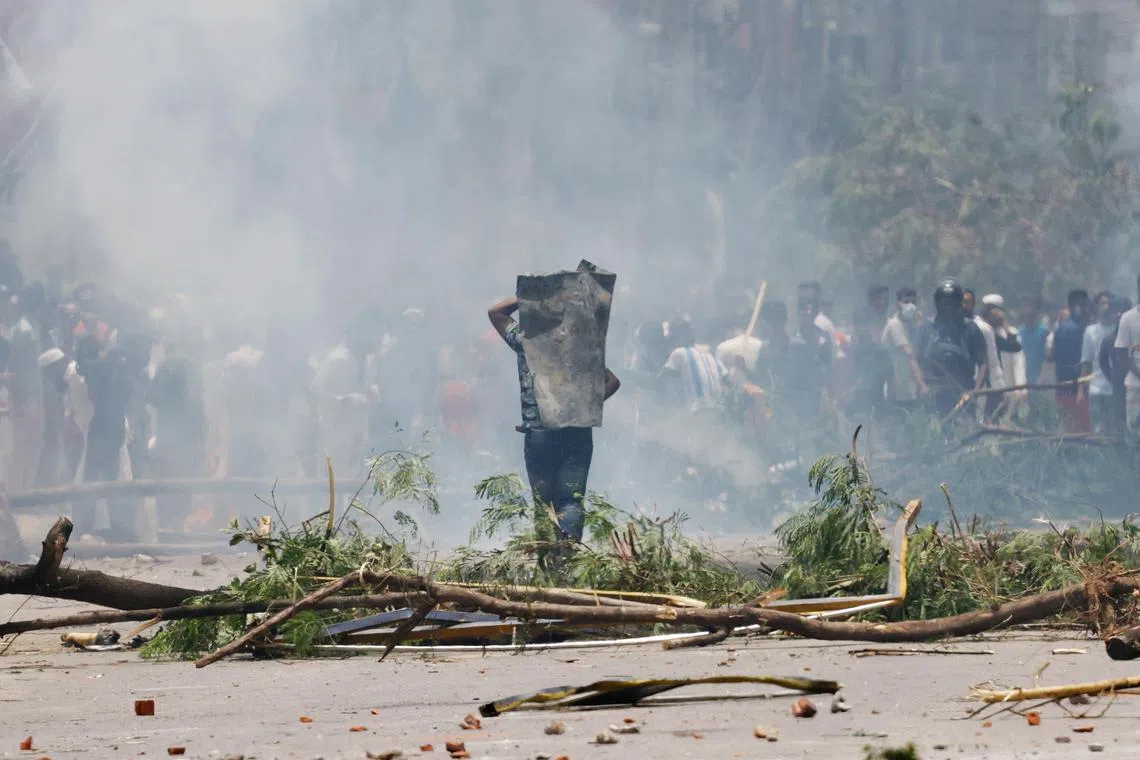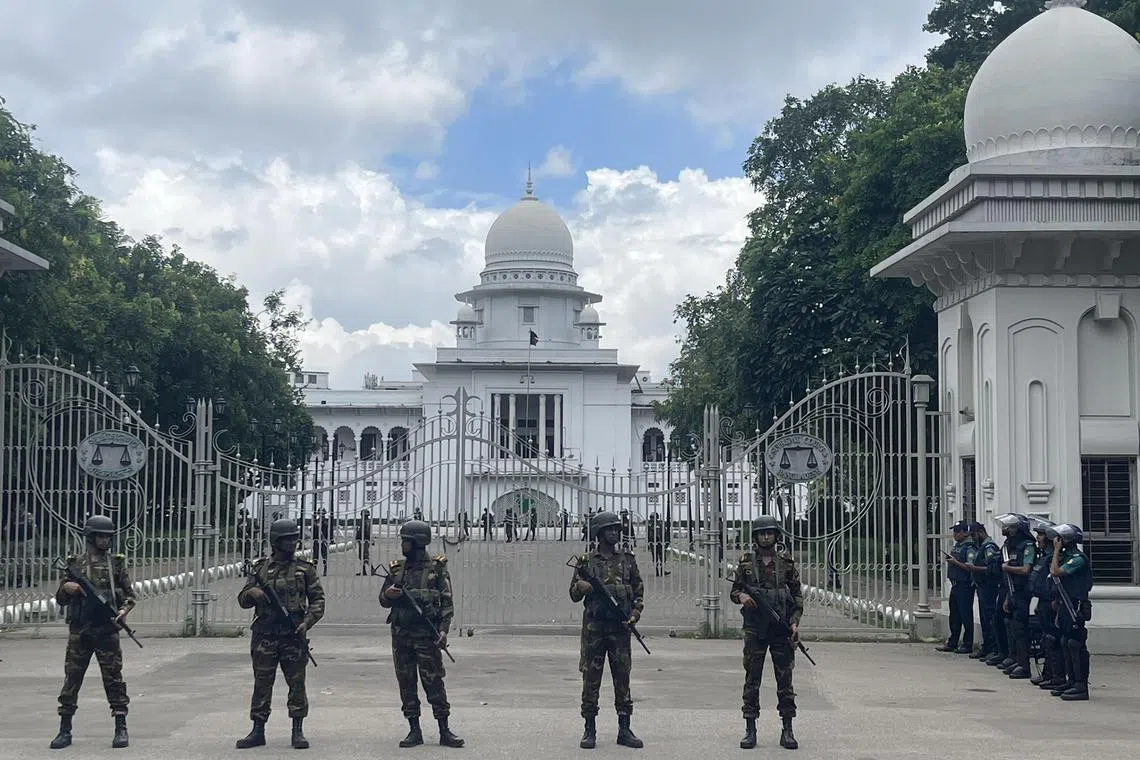Bangladesh’s top court winds back job quotas that sparked deadly unrest
Sign up now: Get insights on Asia's fast-moving developments

A protester shielding himself with a metal sheet amid violence across Bangladesh over a civil service quota system.
PHOTO: REUTERS
Follow topic:
DHAKA – Bangladesh’s top court on July 21 pared back, but fell short of public demands to abolish, contentious civil service hiring rules that sparked nationwide clashes
What began as a protest against politicised admission quotas for sought-after government jobs snowballed into some of the worst unrest of Prime Minister Sheikh Hasina’s tenure.
Soldiers are patrolling cities across Bangladesh after riot police failed to restore order, while a nationwide internet blackout
The Supreme Court was due to decide in August on the legality of the recently reintroduced scheme that reserves more than half of government jobs for select applicants, but brought forward its verdict as the civil strife intensified.
It decided that a lower bench’s order in June to reintroduce the scheme was “illegal”, Bangladeshi Attorney-General A.M. Amin Uddin said.
Mr Shah Monjurul Hoque, a lawyer involved in the case, said the court also asked protesting students “to return to class” after issuing its verdict.
The ruling curtailed the number of reserved jobs, from 56 per cent of all positions to 7 per cent, but fell short of meeting protester demands.
It reserved 5 per cent of all government jobs for the children of “freedom fighters” from Bangladesh’s 1971 liberation war against Pakistan, down from 30 per cent.
One per cent was reserved for tribal communities, and another 1 per cent for people with disabilities or who identify as a third gender under Bangladeshi law.
The remaining 93 per cent of positions would be decided on merit, the court ruled.
The “freedom fighter” category in particular is a point of resentment for young graduates, with critics saying it is used to stack public jobs with loyalists to Ms Hasina’s ruling Awami League.
Students had called for the complete abolition of that category, along with other quotas for women and specific districts of the country.
“We welcome the Supreme Court verdict,” a spokesman for Students Against Discrimination, the main group responsible for organising the protests, said, on condition of anonymity. “But we won’t call off our protests until the government issues an order reflecting our demands.”
‘Our demand is one point’
Opponents accuse Ms Hasina’s government of bending the judiciary to its will, and the Prime Minister had already hinted to the public this week that the court would issue a ruling favourable to student demands.
Ms Hasina, 76, who has ruled the country since 2009, won her fourth consecutive election
Her government is accused by rights groups of misusing state institutions to entrench its hold on power and stamp out dissent, including by the extrajudicial killing of opposition activists.
“It’s not about the rights of the students any more,” business owner Hasibul Sheikh, 24, said at the scene of a street protest on July 20, held in the capital Dhaka in defiance of a nationwide curfew
“Our demand is one point now, and that’s the resignation of the government.”

Soldiers standing guard outside the Supreme Court in Dhaka on July 21.
PHOTO: EPA-EFE
With some 18 million young people in Bangladesh out of work, according to government figures, the quota scheme’s reintroduction deeply upset graduates facing an acute jobs crisis.
Ms Hasina inflamed tensions in July by likening protesters to the Bangladeshis who had collaborated with Pakistan during the country’s independence war.
“Rather than try to address the protesters’ grievances, the government’s actions have made the situation worse,” Crisis Group’s Asia director Pierre Prakash said.
Since July 16, at least 151 people, including several police officers, have been killed in clashes around the country, according to a count of victims reported by police and hospitals.
Police have arrested several members of the main opposition Bangladesh Nationalist Party (BNP) and Students Against Discrimination.
Bangladeshi Home Minister Asaduzzaman Khan said the curfew imposed on July 20 would continue “until the situation improves”.
He said that in addition to the torching of government buildings and police posts by protesters, arson attacks had left Dhaka’s metro rail network inoperable.
“They are carrying out destructive activities targeting the government,” Mr Khan said, blaming the BNP and the Islamist party Jamaat for stoking the violence.
The US State Department warned Americans on July 20

